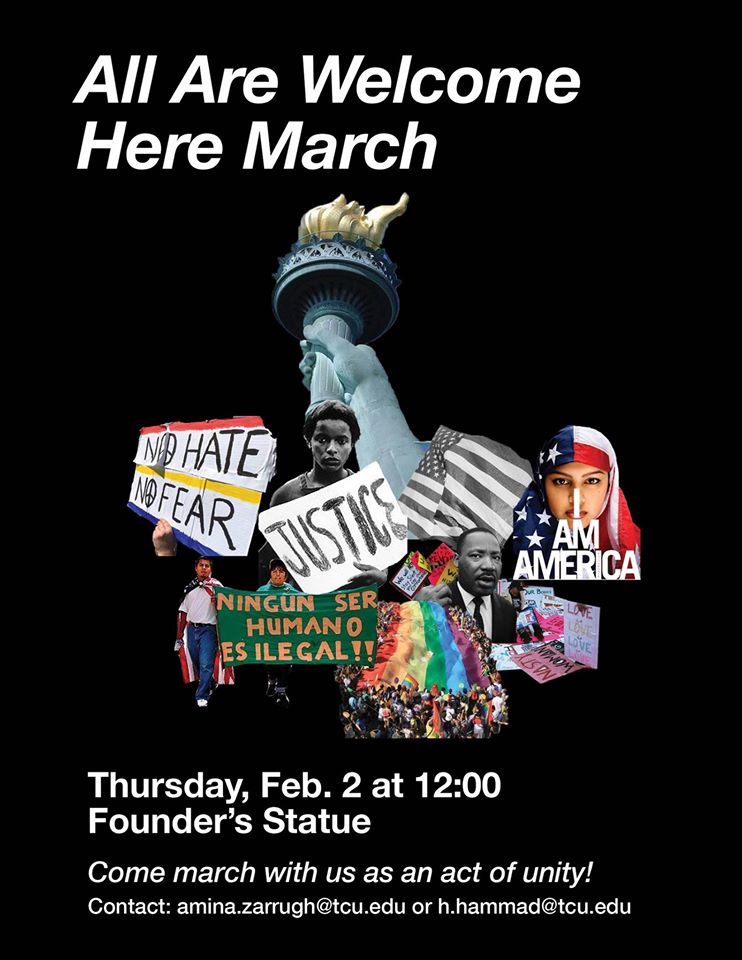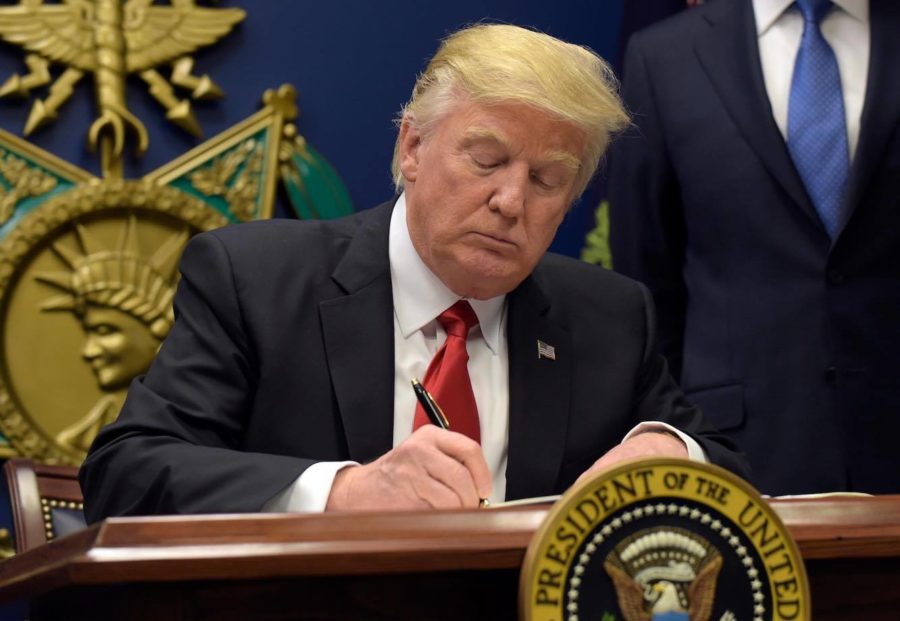TCU hosts six students from Iran, Somalia and Sudan: Three of the seven countries listed in President Trump’s travel ban, according to the 2016 TCU Fact Book. The order sparked protests nationwide and abroad after it was announced that the government had suspended travel from Iraq, Syria, Iran, Libya, Somalia, Sudan and Yemen. Amal Khan, a junior biology major and co-president of TCU’s Muslim Student Association, questioned if the move was legal. “I was shocked that it was implemented at all since it’s illegal,” he said. “Banning people based solely on religion is discriminatory and un-American. I can’t imagine the pain and suffering so many families are going through right now.” Religion was not cited in the order as the reason for the ban. Former mayor of New York Rudy Guiliani spoke on FOX News defending the rationale of the order as focusing on “areas of the world that create danger for us.” The order bans travelers coming from these countries until the Secretary of Homeland Security, the State Department, and the Director of National Intelligence determine that they are not a threat to the United States. The order says the visa-issuance process “plays a crucial role” in figuring out whether these people have ties to terrorism. Trump cited the 9/11 attacks as a disaster caused by poor vetting. “Perhaps in no instance was that more apparent than the terrorist attacks of September 11, 2001, when State Department policy prevented consular officers from properly scrutinizing the visa applications of several of the 19 foreign nationals who went on to murder nearly 3,000 Americans,” the president wrote. None of the hijackers in the attacks, however, originated from countries listed in the travel ban. Greg Carr, a junior nutrition sciences major and members of the Islamic Association of Tarrant County, thinks the Trump administration needs to adjust its focus. “There is not a single fatal terrorist attack in the U.S. by an immigrant from those seven countries,” Carr said. “Lebanon, Saudi Arabia, the UAE, and Egypt are exempt, yet these are the countries where the 9/11 hijackers were from. The intention seems to be more about pandering to an irrational fear of terrorism. For example, there have been 230,000 murders in the United States since 9/11, but only 123 deaths caused by Muslim extremists. I think we are distracted from the real issues here.” Carr also spoke about promoting unity as he wants people in the community to meet Muslims and educate themselves about Islam. He recommended visiting the Masjid Al Ibrahimi, a religious center located on 4901 Diaz Ave. to learn more. 
Categories:
Chancellor and students react to Trump’s executive order; campus protest planned for Thursday
By Elizabeth Campbell and Shane Battis
Published Jan 31, 2017
President Donald Trump signs an executive order on extreme vetting during an event at the Pentagon in Washington, Friday, Jan. 27, 2017. (AP Photos/Susan Walsh)
More to Discover







